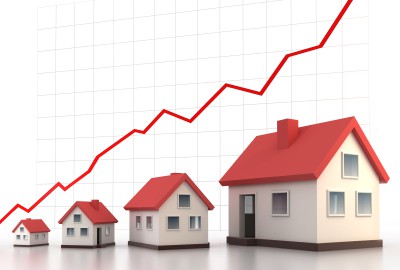How to Find the Right Home Price
 Pricing a home requires a higher level of objective analysis than most of us use on a daily basis. Sellers have to be able to tune out their memories attached to the home and their dreams for the future, while tuning in to the chaotic real estate market and the details of their home that may have become white noise years ago. Setting the right home price cannot be based on the nostalgia of the dining room where your daughter had her fifth birthday party—nor can it neglect the cracked window pane from the indoor piñata your husband thought was a good idea at that birthday party.
Pricing a home requires a higher level of objective analysis than most of us use on a daily basis. Sellers have to be able to tune out their memories attached to the home and their dreams for the future, while tuning in to the chaotic real estate market and the details of their home that may have become white noise years ago. Setting the right home price cannot be based on the nostalgia of the dining room where your daughter had her fifth birthday party—nor can it neglect the cracked window pane from the indoor piñata your husband thought was a good idea at that birthday party.
Here are some reliable ways to help you pin down the right home price:
Study recent comparable sales.
Homes of a similar quality to yours and in a similar area are likely to sell for a similar price. Use this principle to approximate your home’s worth by studying recent comparable sells.
Understand features that increase value.
You may come across two homes that appear similar and yet sold for vastly different prices. Try to tease out the difference between these two homes to get a grasp on what features add, or detract, value from a home. Maybe one home had an open floorplan and the other was a labyrinth of hallways. Or perhaps one home was located on a cul-de-sac, while the other looked over a four-way stop.
Once you understand the details that add or subtract value from a home, you can tally the details of your home up to get a more exact price estimation.
Brush up on fixtures and finishes.
Most buyers are smitten with current, neutral fixtures and finishes. They will shell out more cash for a home that matches their aesthetic ideal. Even minor details can make a big impact. If your home is full of bright gold doorknobs from the 1980s, try replacing them with brushed nickel. Consider changing mismatched appliances for stainless steel. The difference in your home’s worth will compensate for the expense of these small upgrades.
Examine the housing market.
Are you in a buyer’s market or a seller’s market? If you notice that your neighborhood is riddled with “for sale” signs during your morning commute, you are probably in a buyer’s market. You may have to reduce your price to compete with other properties. If you have difficulty finding recent comparable sells because listings are so sparse, you are likely to be in a seller’s market. You might be able to increase your price.
Consult your agent.
Real estate agents make their living from knowing about homes and the current housing market. While you don’t have to defer to their judgment completely when you set the price of your home, they can be a valuable resource. Ask them questions or ask them to review your ideas. They can lend a professional perspective to your endeavors.
Identifying the right home price is the first step towards making a sell. If you choose the right home price from the get-go, your home may attract enough buyers to start a bidding war, which could increase your home’s value. On the other hand, if your price is too far off, you might end up having to slash the price, which could embolden buyers to push for an even lower price.